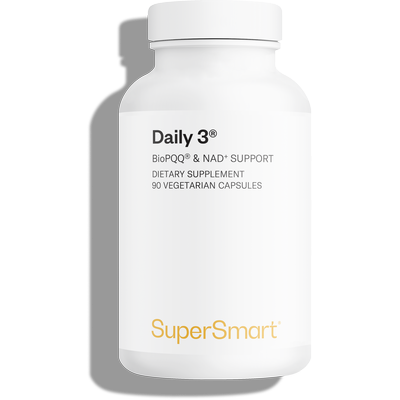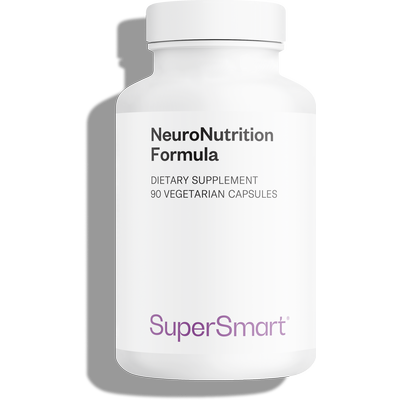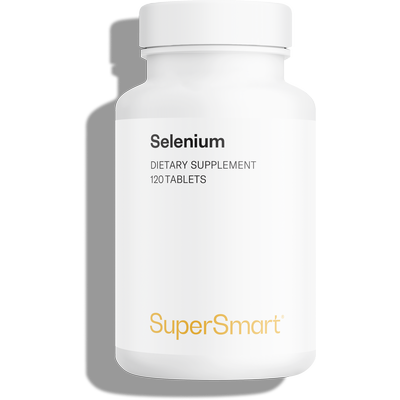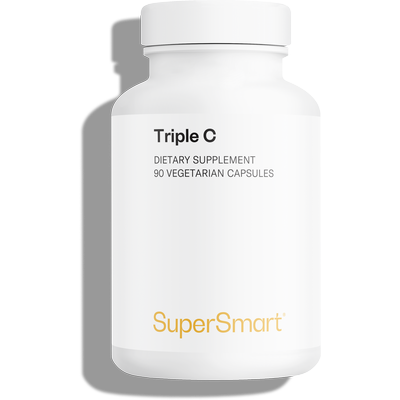26-09-2018
Cognitive decline: how to avoid the misery of the ageing brain

We’re increasingly told that cognitive decline is not normal and that we should not automatically associate ‘ageing’ with ‘loss of cognitive ability’. Sadly, I have to tell you that this view is just an illusion.
The thousands of studies conducted on cognitive ageing unanimously support the theory that increasing age has a damaging effect on cognitive performance1, particularly on memory 2. The decline may begin from the fifth decade of life, irrespective of an individual’s state of health. Given that in a few decades’ time, we may well be living to the age of 130, this is a worrying scenario. Can you imagine spending 80 of your 130 years of life with diminished abilities?
. At the present time, it is not easy to identify and catalogue cognitive problems that are related to age. According to a recent French study3, 60.8 % of older people experience cognitive decline in the form of memory problems, but only 15.5% consult their GP about them.
At what age can we talk about normal cognitive decline? And how is it distinct from pathological decline? Over time, our bodies are subject to an increasing number of minor dysfunctions, cerebral and otherwise, which we are powerless to prevent. These are not pathological; they occur alongside normal ageing. Various studies report diminished activity in the prefrontal cortex which is involved in encoding and information-processing by the memory. The brain ‘reorganises’ its activity sup>4, and adapts despite the ageing of tissues and sensory organs, which indirectly impairs the efficiency of memorisation processes. Often, these changes are not the only reason for potential cognitive problems: on average, doctors write 12 prescriptions a year for the over-65s, primarily for psychotropic drugs which have a well-documented effect on cognitive performance 5.
Is the decline general or selective? Do certain cognitive functions change earlier, or to a greater extent, than others?
When we talk about age-related cognitive decline, the first thing we think of is memory. A key element of cognitive function, memory is particularly sensitive to the effects of ageing - all of us have witnessed this at some point in the people around us. Some authors believe 7 the effects of ageing may reduce the memory’s information-storage capacities, while others think it primarily affects our ability to concentrate, which is essential for storing information 8. Either way, not all types of memory respond in the same way.Long-term episodic memory seems to be most affected. This is where we’re able to recall facts but we forget the context in which we registered them. For example, we’ll have no problem remembering a particularly harsh winter when we had two metres of snow, but we’ll find it hard to pinpoint the exact year, or what we were doing at the time and with whom. This type of memory deficit gives rise to illusory memories: older people are thus particularly susceptible to distorted memories.
Two other types of memory are also particularly affected: prospective memory and working memory. Prospective memory is our ability «not to forget to remember» to carry out a planned action. Loss of this type explains the increasing use of memory aids such as diaries or annotated calendars. Working memory is the ability to memorise a piece of information for a short time after you have been told it. It’s a fundamental requirement for most activities of daily life: following a conversation, retaining a telephone number or an address …
In addition to memory, there are other types of cognitive ability that are subject to decline, such as cognitive flexibility. Older people are less able to switch quickly from one concept to another, to change their point of reference or criteria. This type of change explains why older people sometimes have trouble with modern paradigms or ways of thinking, such as using the Internet or digital communication.
Finally, the older we get, the more time it takes to process information. There is undoubtedly an overall slowing down of cognitive ability , which has been identified and measured in a number of ways. A gradual decline in attention has also been highlighted. On the other hand, organisation and handling of concepts such as language appear to remain stable with age, which is certainly not the case with pathological ageing (Alzheimer’s disease, senile dementia)…
What is responsible for the decline?
While age-related cognitive problems are considered ‘normal’ after a certain age, not everyone will experience them in the same way: for some, daily life is affected very quickly, others may for some time feel they’re slipping through the net, and still others continually mourn the loss of abilities they have identified. How can we explain these important differences?While ageing is a natural process, it is influenced by a number of factors. Genetics clearly play a role, but contrary to what you might think, environmental factors are a more significant influence. A lack of physical activity and intellectual stimulation, smoking, and chronic stress all promote cognitive decline. But it is probably diet that plays the greatest role – a point we’ll come back to in the next paragraph. In any event, these factors exacerbate the oxidative stress responsible for cellular ageing and are implicated in normal cognitive decline in which there is invariably a loss of brain cells in different regions of the brain. Finally, it’s important to add that these variables can also be affected by emotions; deficits in memory and attention cannot be separated from this dynamic. Some people will focus on the losses they have suffered (loss of self, function, possessions …) and begin a grieving process which we know can lead to depression. Ageing is thus often accompanied by symptoms of depression which have particularly damaging effects on memory. 6.
Is it possible to prevent or slow down the decline?
Among the environmental factors that determine cerebral ageing, nutrition appears to be a key element in preventing cognitive decline. It is essentially a controllable factor for those committed to safeguarding their mental faculties. There are many studies highlighting the link between nutrition and ageing of the brain 11, 12. This is hardly surprising since the brain only functions correctly when it is optimally ‘nourished’. No organ depends as much on nutrient intake as the nervous system. Micronutrients, in particular, play a central role in neuroprotection and prevention of cognitive decline.It’s now widely known that as part of normal metabolism, reactive oxygen species are generated which ‘attack’ the body and promote ageing – this is the famous ‘oxidative stress’. However, what’s not so well-known is that oxidative stress increases considerably with age, due to a gradual decline in production of endogenous antioxidants (those generated by the body). In other words, the older we get, the more the system responsible for ageing intensifies. This process is very well documented, particularly in subjects aged over 70 12.
To combat oxidative stress, the universal advice is to eat as much fresh fruit and vegetables as possible. But the reality is that in addition to older people suffering greater oxidative stress, their intake of dietary antioxidants is significantly lower. This imbalance is catastrophic for the brain, which is especially vulnerable to oxidative stress (due to its significant requirements fox oxygen) and the logical outcome is inexorable decline 13-15.
A decreasing sense of taste, a lack of physical activity, a reduction in base metabolism, depression and isolation are all factors behind this significant fall in antioxidant intake. Restoring a healthy nutritional status in terms of antioxidant micronutrients is therefore essential in order to counteract the cognitive decline which lies in wait for us all . But how can we do this? There are two possible solutions: firstly, stimulate your appetite by engaging in physical activity and social interaction and by cooking appetising, flavourful dishes rich in antioxidants. Then, top up your diet with nutrients and micronutrients by taking concentrated antioxidant supplements. This is important since physiological changes in the gastrointestinal tract and the impact of chronic diseases often impair the bioavailability and absorption of micronutrients.
Certain micronutrients should be prioritised for their neuroprotective effects on the brain16.
-
- Zinc, along with iron, is the trace element present in the brain in the highest concentration, primarily in the cerebral cortex, an area with a key role in learning and memory. Zinc contributes to cerebral structure and functioning. Deficiencies in zinc result in immediate cognitive changes and represent an identified factor in cognitive decline and neurodegenerative processes17. Several authors report that 44% of adults aged over 70 have an inadequate zinc intake 18-20.
- Selenium is valued for its well-known antioxidant properties. Two recent studies have demonstrated its role in brain function and its effect on mood.
- Two vitamins are central to antioxidant defences: vitamin C and fat-soluble vitamin E Together they exert a synergistic antioxidant effect, which is particularly apparent in the brain. Unfortunately, the foods with the highest concentration of these vitamins are often those consumed least by older people …
From now on, you can now no longer claim you’re powerless to prevent cognitive decline …
References
1. Salthouse TA. Theorical perspectives and cognitive a ging, Hillsdale, NJ : Lawrence Erlbaum Associates Ltd, U.K. 1991 .
2. Van der Linden M & Huppet M. Le vieillissement cognitif. P.U.F., Paris 1994.
3. Dartigues JF, Fabrigoule C, Letenneur L, Amieva H, Thiessard F, Orgogozzo JM. Épidémiologie des troubles de la mémoire. Thérapie 1997 ; 52: 503-6.
4. Nyberg L, Winocur G, Moscovitch M. Correlation between frontal lobe functions and explicit and implicit stem completion in healthy elderly. N e u r o p s y c h o l o g y 19 97 ; 11: 70 – 6
5. Goldberg TE, Weinberger DR ; Thought disorder, working memory and attention: interrelationships and the effects of neuroleptic medications. Int Clin P s y c h o p h a r m a c o l 1995 ; 10 Suppl 3:99-10 4
6. Danion JM. Troubles de la mémoire et dépression. In: Mémoire explicite, mémoire implicite et pathologi e s psychiatriques. Danion JM, Van der Linden M, Nicolas S, Peretti S, Sellal F Eds, Masson, Paris, 1993 ; 141- 71
7. Salthouse TA, Babcok RL. Decomposing adult age differences in working memory. Devel Psychol 19 91 ; 27: 76 3 – 76
8. Van der Linden M, Brédart S, Beerten A. Age-related differences in updating working memory. Br J Psychol 1994 ; 8 5: 14 5 - 52
9. Spencer WD, Raz N. Differenrial effects of aging on memory for contain and context: a meta-analysis. Psychol Aging 1994 ; 4: 527- 39
10. Hartley AA. Attention. In : The Handbook of Aging and Cognition. Craik FIM, Salthouse TA, (Eds). Hillsdale, N.J.: Lauwrence Erlbaum Associates 1992 : 3 – 50
11. Meydani M. Antioxidants and cognitive functions. Nutr Rev. 2001;59/8, S75-S82. Euronut Seneca. Nutrition and the elderly in Europe. Eur J Clin Nutr. 1991;45(suppl 3):1-185.
12. Roussel AM, Ferry M. Stress oxydant et vieillissement. Nutr Clin Metab. 2002;16:285-292
13. Berr C, Balansard B, Arnaud J, Roussel AM, Alperovitch A. Cognitive decline is associated with systemic oxidative stress: the EVA study. JAGS. 2000;48(10):1285-91.
14. Calvaresi E, Bryan JB. Vitamins, cognition and aging: a review. J Gerontol B Psychol Sci Soc. 2001;56:328-39.
15. Hughes DA. Dietary carotenoids and human immune function. Nutrition. 2002;17:823-7.
16. McDaniel MA, Maier SF, Einstein GO. “Brain-specific? nutrients: A memory cure? Psychol Sci Public Interest. 2002;3:12-38.
17. Cuajungco MP, Fagat KY. Zinc takes the center stage: its paradoxical role in Alzheimer's disease. Brain Res. 2003 Jan;41(1):44-56.
18. Blumberg J. Nutritional needs of seniors. J Am Coll Nutr. 1997;16:517-23.
19. McClain CJ, McClain M, Barve S, Boosalis MG. Trace metals and the elderly. Clin Geriat Med. 2002;18: 801-8. 38.
20. Briefel RR, Bialostosky K, Kennedy-Stephanson J, McDowell MA, Ervin RB, Wright JD. Zinc intake of the U.S. population: findings from the third National Health and Nutrition Examination Survey, 1988-1994. J Nutr. 2000;130(5S Suppl):1367S-73S.
Order the nutrients mentioned in this article

The most complete multivitamin supplement you can take in a single capsule
www.supersmart.comFurther reading
28-08-2019
Though many people are not aware of choline, it is actually recognised as an essential nutrient by the prestigious US National Academy of Medicine 1...
Read more10-10-2016
In India, turmeric is used to treat a wide variety of ailments including gastrointestinal problems, inflammation, headaches, infections and colds. It is turmeric’s curcuminoid content,...
Read more28-06-2017
As the control centre of the central nervous system, the brain has to deal with a constant flow of data, processing millions of bytes of...
Read more© 1997-2025 Fondation pour le Libre Choix
All rights reserved
All rights reserved
Free
Thank you for visiting our site. Before you go
REGISTER WITHClub SuperSmart
And take advantage
of exclusive benefits:
of exclusive benefits:
- Free: our weekly science-based newsletter "Nutranews"
- Special offers for club members only





















